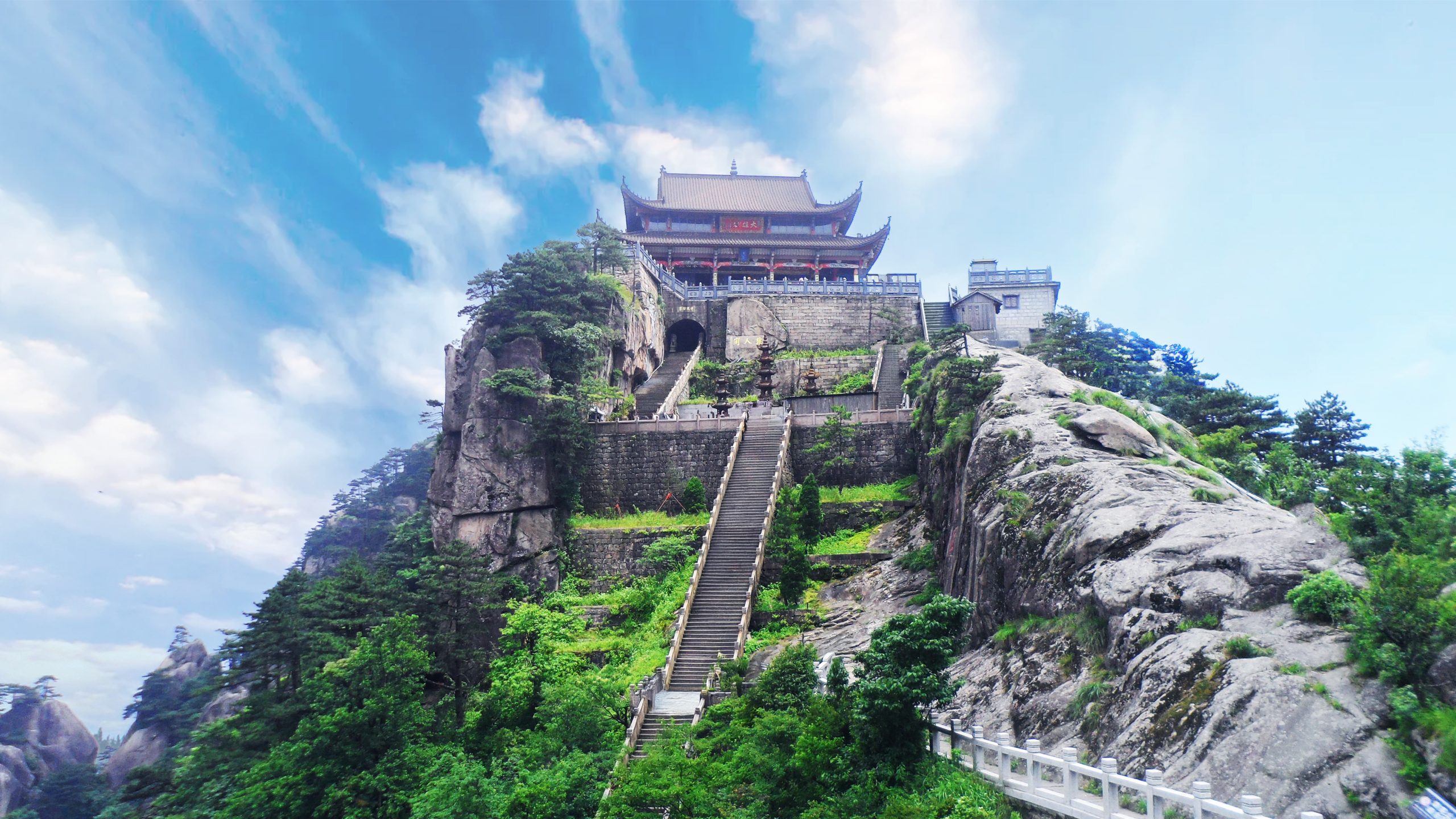Translated By Tony Qin
“A lone temple stands amidst a thousand peaks,
Even poetry intrudes where nothing speaks.
Along the gorge, branches sway as monkeys descend,
In the clouds, khakkhara staffs ring where monks ascend.
Moonlit pines cast cold shadows against the sky,
The fountain’s roar blends with the stream’s soft sigh.
Come dawn, I’ll tread the clouds again,
Vowing to grow old in leisure, among these mists remain.“
This poem was composed by Chan Master Leng Ran of the Tang Dynasty during his stay at Huacheng Temple on Mount Jiuhua.
Located in Qingyang County of China’s Anhui Province, Mount Jiuhua boasts ninety-nine peaks, with nine rising majestically like a lotus blossom. The mountain is home to streams, waterfalls, ancient caves, and towering pines, creating a landscape of extraordinary beauty and grace. Immersed in the serene joy of Chan meditation, the Master delicately conveys his sentiments about life in the mountains. Compared to living in the noisy clutter of the mundane world, how leisurely, pure, and simple is the life of Chan practice!
Huacheng Temple, nestled among countless layers of mountain peaks and ridges, emanates with purity and solemnity. Does such a transcendent environment, so far removed from the dust of the world, truly need to be praised with worldly words? Thus, the Master writes, “Even poetry intrudes where nothing speaks,” humbly chastising himself for disturbing this tranquil realm with his verse.
“Along the gorge, branches sway as monkeys descend,
In the clouds, khakkhara staffs ring where monks ascend.”
One could not see the monkeys, but only the swaying branches as they descend into the gorge. Nor could one see the monks in the clouds, but only hear the ringing of their staffs. Khakkhara staffs are adorned with copper rings, and make a ringing sound whenever it is moved. The movement of trees along the gorge and the khakkhara staffs’ ringing from the mountainside clouds suddenly imbue the stillness of the misty gorge with life.
This apparent opposition between movement and stillness exemplifies the contrasting phenomena of the world. Yet, without stillness, movement could not express its motion, and, without movement, stillness could not reveal its serenity.
Once a Chan practitioner realizes the “Non-duality of movement and stillness,” as described by the Śūraṅgama Sūtra, their true mind will naturally be revealed. Thus, every aspect of movement and stillness in the mountains is a wonderful opportunity for Chan contemplation.
“Moonlit pines cast cold shadows against the sky,
The fountain’s roar blends with the stream’s soft sigh.”
The monkeys descending the gorge and the monks ascending the mountain gradually fade from the Poet-Monk’s mind. Before him, only the silhouette of pines in the moonlight and the sound of flowing spring water remain. A Chan Master’s secluded life on a remote, uninhabited mountain may seem like hardship to a city-dweller, but the joy that arises from such a life cannot be attained through material comforts, nor expressed in words or concepts.
“Come dawn, I’ll tread the clouds again,
Vowing to grow old in leisure, among these mists remain.”At dawn, the Chan Master would once again tread up the mountain, reaching another peak above the clouds. He would spend the rest of his life among the mists of Mount Jiuhua, living out his Chan practice until the end of his days.

